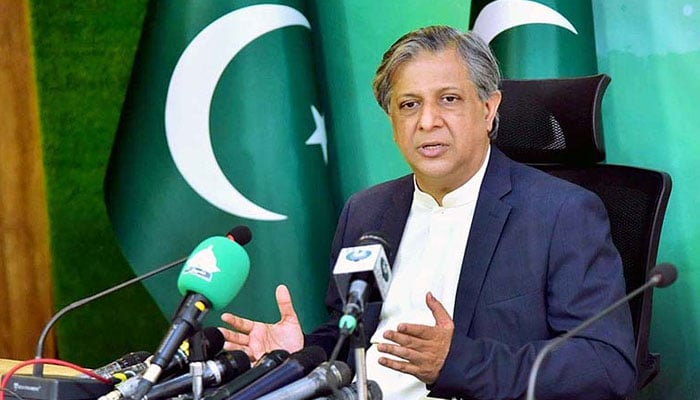ISLAMABAD – Federal Minister for Law Senator Azam Nazeer Tarar said that, in his view, ad-hoc judges should be appointed and the constitution also permits the appointment of ad hoc judges.
While speaking on a private TV program, the Law Minister said that ad hoc judges are to be appointed not by the Chief Justice, but by the Judicial Commission. He supports a constitutional amendment for judicial system reforms.
Regarding the question of extending the tenure of the Chief Justice, the Law Minister said that the news about the extension of Chief Justice Qazi Faez Isa’s tenure is not correct. The discussion on extending the tenure of government employees arose due to the high pension bill.
He said that around the world, the retirement age of government employees has been increased, and the government has to pay a heavy amount in pensions. The proposal to extend the tenure of all government employees, including the judiciary, was under consideration, and the power to amend the constitution lies with the parliament.
Senator Azam Nazeer Tarar said that at the end of April or the beginning of May, there was a meeting with the Chief Justice regarding the Judicial Commission. At that time, the issue of extending the tenure of the Chief Justice of Pakistan was also discussed, but the Chief Justice of Pakistan stated that he was not interested in an extension of his tenure.
He said that Justice Mansoor Ali Shah agreed with the proposal to extend the tenure of the Chief Justice. Justice Mansoor Ali Shah had stated that the authority to extend the tenure of the Chief Justice rests with the parliament.
The Federal Law Minister said that the recent decision of the Supreme Court provided an opportunity for a party to become stronger. Eight judges rewrote the constitution in the case of reserved seats, and the MPAs who were sent home without being heard are also coming for review.
In response to another question, the Law Minister said that the issue of applying Article 6 to PTI leaders could be brought to the parliament. The PTI was not calling a meeting on the no-confidence motion, and the court was approached to call a meeting for the no-confidence motion.










